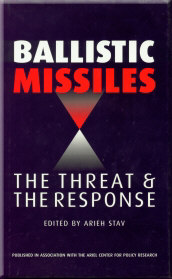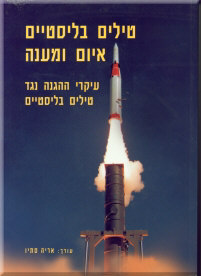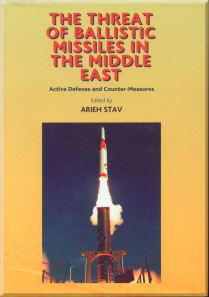|
|
|||||
| ACPR BOOKS | |||||
|
The potential threat from primitive, inexpensive ballistic missiles, especially when armed with means of mass destruction, represents a major development in the arms race. The accelerated escalation in the number, range, and load-carrying capabilities of the missiles in the last decade has occurred because the technologies required to manufacture a missile of the Scud type and its derivatives are simple, cheap, and readily available. In contrast, interception requires technologies found only at the forefront of twenty-first century military science. This disparity, favoring the aggressor, forms a tremendous temptation for Arab states in the Middle East – such as Egypt, Libya, Syria and Iran – to build up stocks of missiles. The Threat of Ballistic Missiles in the Middle East addresses the complex issue of defense against ballistic missiles by intercepting them at various stages of their trajectory: during launching – such as the Boost Phase Interception (BPI) project being developed by RAFAEL; in the middle of their trajectory, outside the atmosphere – such as the THAAD project of the US Army and the AEGIS project of the US Navy; or in the final stage, when the missile is approaching the target – such as the Israeli Arrow project. This volume poses both technical and conceptual questions regarding the issue of missile-to-missile interception, in contrast to the doctrines of second-strike retaliatory capability and pre-emptive strike. The specific threats posed by ballistic missiles to the State of Israel are examined, albeit the security constraints involved in the discussion of many issues which must remain shrouded in secrecy. The 16 research articles, written by leading experts in Israel, the US, and Britain, represent the first serious inquiry to address the specifics of the urgent ballistic missile proliferation and threat in the Middle East. The material presented in this book has been written by the foremost experts in their fields from Israel, the US and Europe, including: Haim Assa, Angelo M. Codevilla (Boston University), Yehezkel Dror (Hebrew University of Jerusalem), Geoffrey E. Forden (formerly of Stanford's Center for International Security and Arms Control), Frank J. Gaffney, Jr. (Center for Security Policy in Washington), David Gates (Center for Defense and International Security Studies at Lancaster University), Moshe Guelman (Asher Space Research Institute of the Israel Institute of Technology), Uzi Landau (MK, Chairman of the Israeli Knesset's Foreign Affairs Committee), Danny Leshem, Azriel Lorber, Reuven Pedatzur, Dan Rosen (RAFAEL - the Israeli Armament Development Authority), Dany Shoham and Gerald Steinberg (BESA Center for Strategic Studies), Arieh Stav, Yoash Tsiddon-Chatto, David Vaughan (RAND Corporation).
|
|||||



